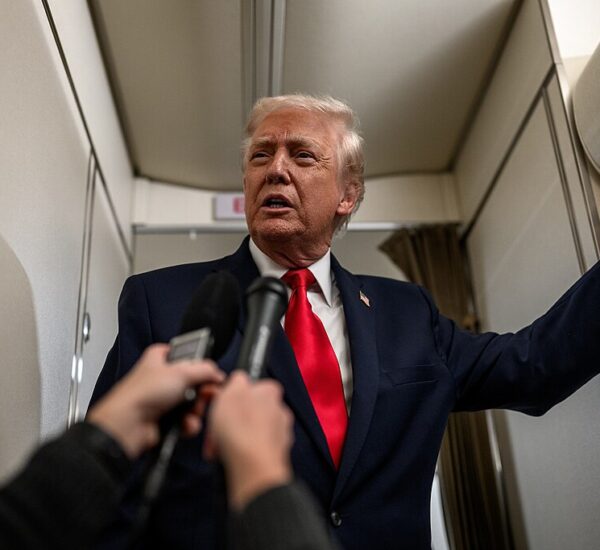GOP Leaders Prepare For Major Showdown
Washington, D.C. – A growing divide is emerging inside the Republican Party as Senate Majority Leader John Thune (R-S.D.) faces pushback from GOP colleagues over a House-approved spending cut package aimed at slashing $9.4 billion in taxpayer dollars—targeting foreign aid and left-leaning media outlets like NPR and PBS.
The proposed “rescissions package,” strongly backed by President Donald Trump, would eliminate funding for global health programs and strip future support for the Corporation for Public Broadcasting (CPB)—a longtime piggy bank for progressive narratives under the guise of public service.
While many fiscal conservatives applaud the move to rein in runaway spending and end taxpayer funding of partisan news outlets, some Senate Republicans are hesitant—raising concerns about losing local radio stations and health programs tied to President George W. Bush’s global AIDS relief initiative.
GOP Senators Split Over Spending Cuts
Sen. Susan Collins (R-Maine), chair of the Senate Appropriations Committee, voiced strong opposition to defunding the CPB and global health programs. “Seventy percent of public broadcasting funds support local stations, especially in rural areas,” she said, referencing emergency alert systems and popular educational programming in her home state like local high school quiz shows.
Yet Collins also acknowledged NPR’s well-known liberal bias, calling out its “partisan bent” and citing explosive claims by former editor Uri Berliner, who blew the whistle on internal bias at NPR in a report for The Free Press.
Sen. Mike Rounds (R-S.D.) is another likely “no” vote unless funding for tribal and Native American radio stations in rural South Dakota is preserved. “These communities rely on public radio for up to 90% of their funding,” he warned, stressing the importance of local programming in isolated areas.
Trump’s America First Budget Battle Returns
This package marks President Trump’s latest effort to drain the swamp of globalist and progressive pet projects. A similar attempt in 2018 failed in the GOP-controlled Senate—but now with renewed momentum and Trump’s strong leadership, the fight has returned.
Supporters say the $9.4 billion in cuts reflect common-sense priorities—shifting focus away from foreign spending and liberal media subsidies and toward protecting American taxpayers, especially seniors on fixed incomes.
However, behind closed doors, some Republicans worry about giving more power to the Trump administration to reorganize federal agencies and slash congressionally approved funding. An anonymous GOP senator warned, “We’re handing the keys to the executive branch without real oversight. That’s risky—even for a strong leader like President Trump.”
Senate Math: Thune’s Tough Road Ahead
With a narrow 53-47 majority in the Senate, Thune can only afford to lose three Republican votes. Several key GOP senators—Lisa Murkowski (R-Alaska), Jerry Moran (R-Kan.), and Shelley Moore Capito (R-W.Va.)—remain undecided. Each has expressed concern over potential ripple effects on rural infrastructure, health care, and clean energy tax incentives in their states.
Senate Democrats, led by Chuck Schumer (D-N.Y.), have threatened to derail future bipartisan spending bills if Republicans move forward. In a sharply worded letter, Schumer accused the GOP of “playing partisan games” and undermining previous budget agreements.
But grassroots conservatives across the country see it differently. They’re calling on their senators to stand firm, defund biased media, and protect taxpayer dollars from being funneled overseas or into bloated liberal institutions.
Bottom Line: Wasteful Spending or Vital Services?
As the July 18 deadline looms, the pressure is mounting. Will Republicans rally behind Trump’s America First agenda to rein in wasteful spending—or fold under pressure from Democrats and D.C. insiders?
For many conservative Americans, the choice is clear: Stop funding liberal propaganda with our tax dollars. Prioritize American interests. And drain the swamp—once and for all.







Promote our products—get paid for every sale you generate! https://shorturl.fm/221q4